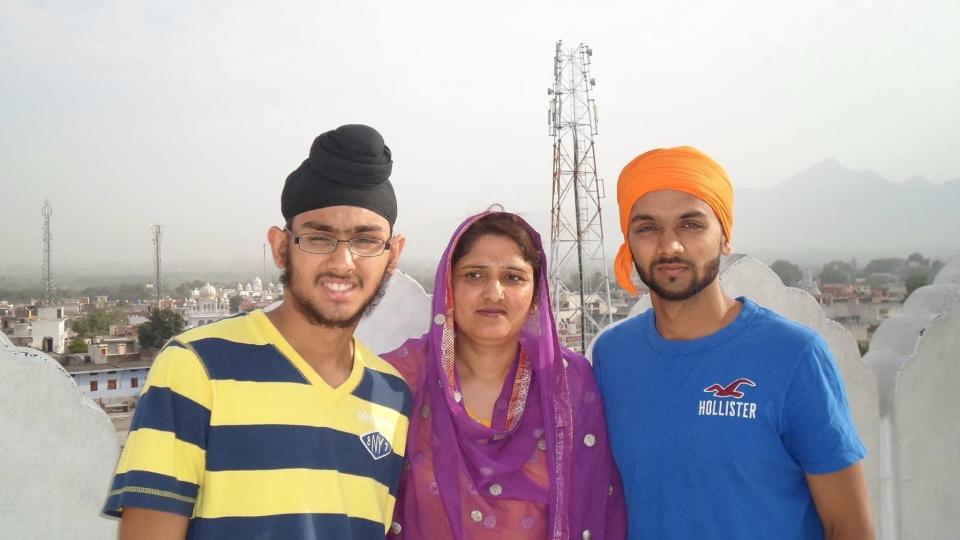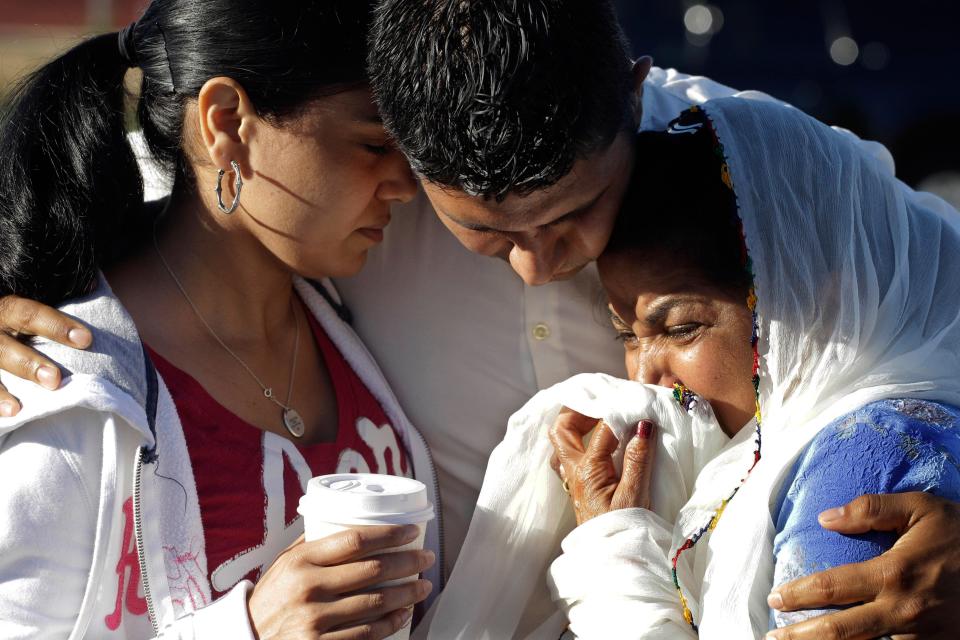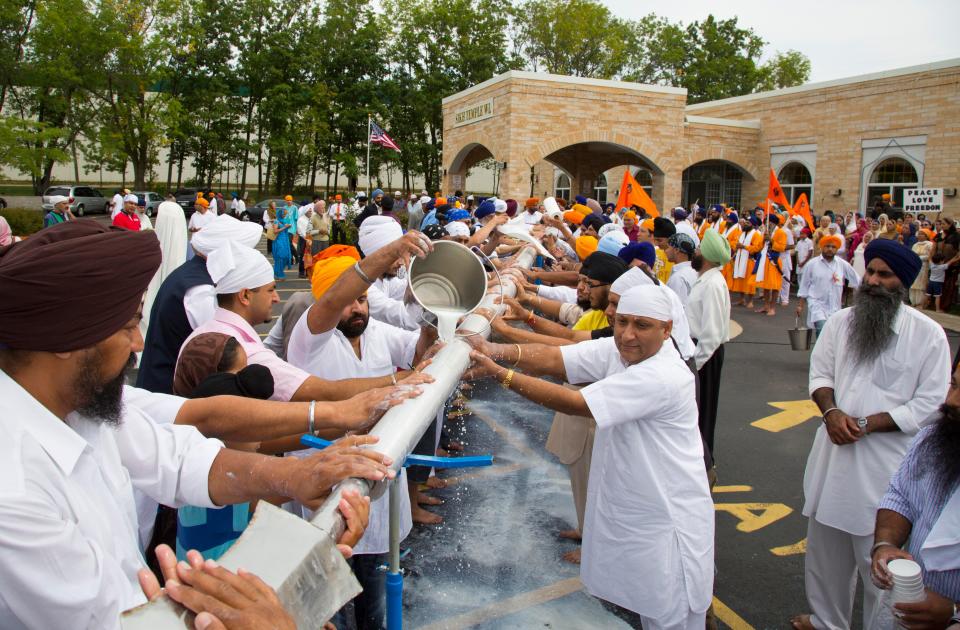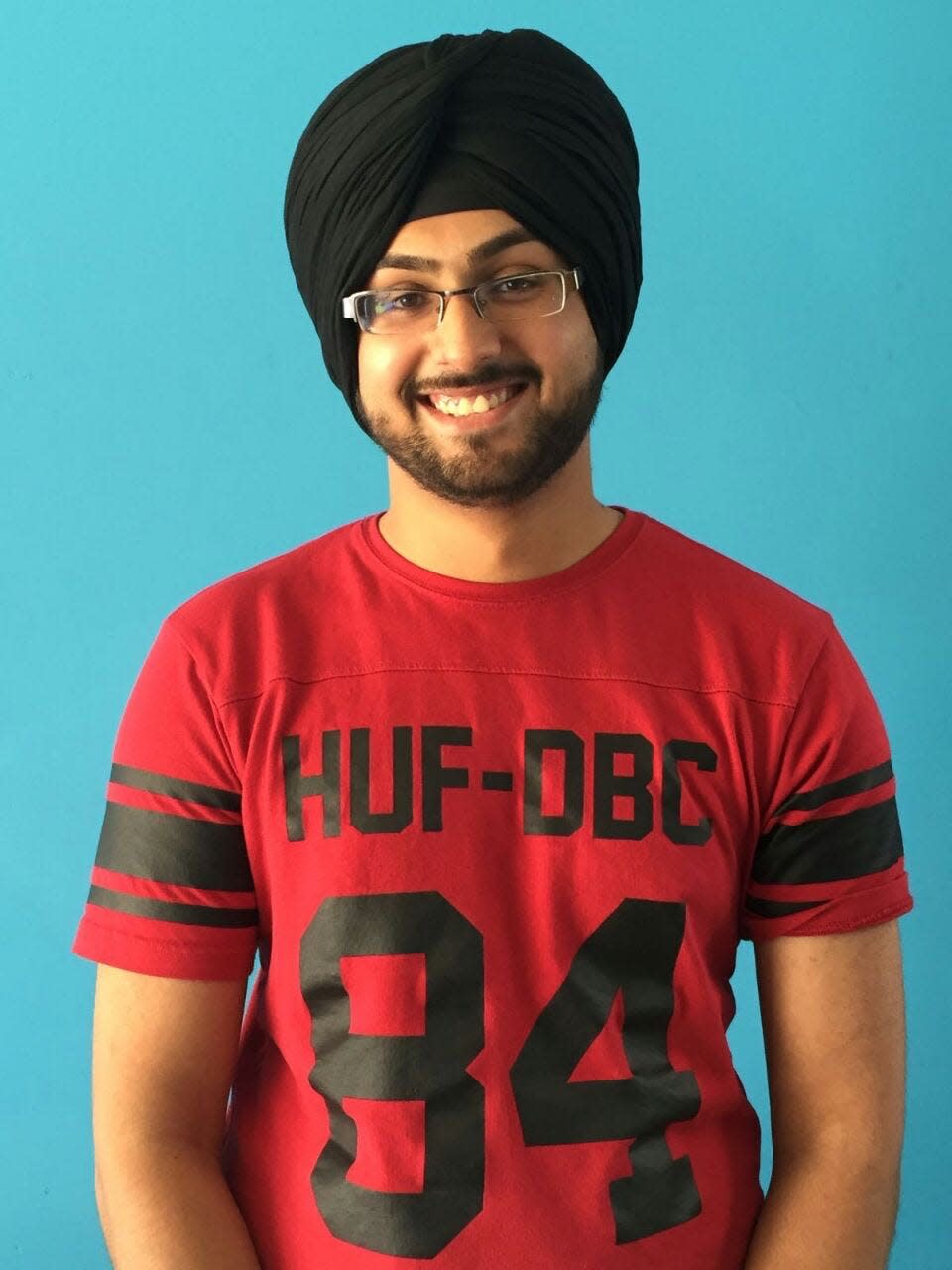My mother was killed by a white supremacist. Now we need advocacy, not sympathy.
Ten years ago this week, my mother was killed by a white supremacist.
On Aug. 5, 2012, a gunman assaulted the gurdwara, or Sikh house of worship, where our family had gathered with our community since immigrating to the United States in 2004. In the course of his violent attack, six worshipers – including my mother, Paramjit Kaur Saini – were killed in Oak Creek, Wisconsin.

Another man, a religious leader for our gurdwara, was severely paralyzed and passed away from his injuries years later. And so many others, including a responding police officer who took more than a dozen bullets in a shootout with the assailant, escaped with physical wounds and psychological trauma.
Forty-five days after my mother’s death, my brother and I traveled to Washington, D.C., where I had the opportunity to testify before the Senate. I asked the federal government to begin tracking anti-Sikh hate crimes because for years, our community had been raising an alarm and no one seemed to be listening.

Another hate crime?: We'll never know why the FedEx shooter killed 8 in Indianapolis. But we're not helpless to take action.
Many Sikhs, members of the world’s fifth-largest religion, maintain visible articles of faith that include turbans and long, unshorn beards. After 9/11, those things sadly became conflated with images of the Taliban in the minds of some Americans.
No community deserves to be targeted by hate, but a groundswell of discrimination, bigotry and backlash was hurting and killing us and members of so many other communities.
What experts say: As an Asian bystander at an anti-Asian crime, why did I do nothing?
Tracking hate crimes, we have a way to go
A few years after my testimony, the FBI did start tracking anti-Sikh hate crimes and bias incidents. Though the data is limited because many cities and states don’t report these crimes to the government in a reliable or consistent way, the number of bias-motivated harassment and assaults of Sikh Americans has increased almost every single year since.

More and more of our fellow Americans know who Sikhs are, how we worship and the ways that we contribute to our society – but a decade after the Oak Creek shooting, and a decade after the death of my mother, we still have a ways to go.
Congress can take action today on three pieces of legislation to counter the kind of hate we face:
►Reintroducing and passing the Domestic Terrorism Prevention Act will equip the government to counter the threat of white supremacist violence – the ideology that drove the man who took my mother from our family.
►Passing the Justice for Victims of Hate Crimes Act would close a loophole that makes it difficult for the federal government to prosecute hate crimes.
►Finally, passing the Nonprofit Security Grant Program Improvement Act would provide more resources for federal grants that can be used to strengthen minority institutions, including gurdwaras like mine, against potential attacks.
Covering mass shootings: Reporting on them has become routine – and endless. But it doesn't get easier.
We need advocacy more than sympathy
This weekend, Sikhs across America will gather for service projects, interfaith candlelight vigils and other commemorative activities. Wherever you are, I urge you to reach out to your local Sikh community and get involved with these remembrances; I know from my experience after Oak Creek that we are stronger in the face of tragedy when we stand together.
But to truly honor those we lost, we need your advocacy just as much as your care and your sympathy. Your voice in amplifying our calls for change in national policy can help us turn the tide against hate.

When I testified before the Senate 10 years ago, I told lawmakers that my mother deserved the dignity of at least being a statistic. I still believe that to be true, in the sense that it was critical for her death to be counted as a hate crime against Sikhs. But I also believe that she – that all of us who have faced and survived violent hate – deserve more.
We all deserve to live in a society where we can gather in houses of worship, wear our articles of faith and simply exist without fear of being targeted. And as we reflect on the 10th anniversary of Oak Creek, now is the time to call for the change we need.
Harpreet Singh Saini is a member of the Sikh community in Oak Creek, Wis. His mother, Paramjit Kaur Saini, was one of those lost in the 2012 gurdwara shooting. In September 2012, he testified before the U.S. Senate Judiciary Committee to urge the FBI to track and publish anti-Sikh hate crimes and bias incidents.
You can read diverse opinions from our Board of Contributors and other writers on the Opinion front page, on Twitter @usatodayopinion and in our daily Opinion newsletter. To respond to a column, submit a comment to letters@usatoday.com.
This article originally appeared on USA TODAY: Sikh temple shooting: Oak Creek was a hate crime. Congress must act

